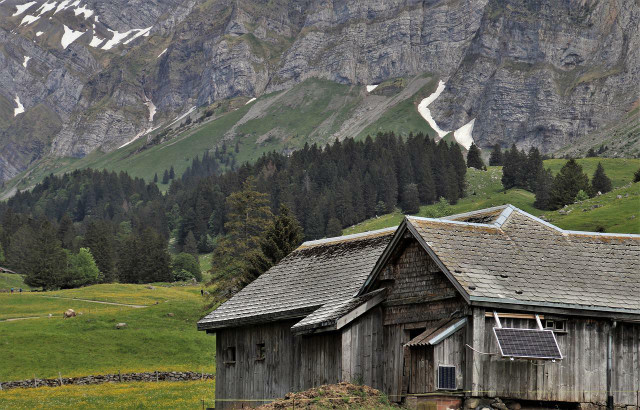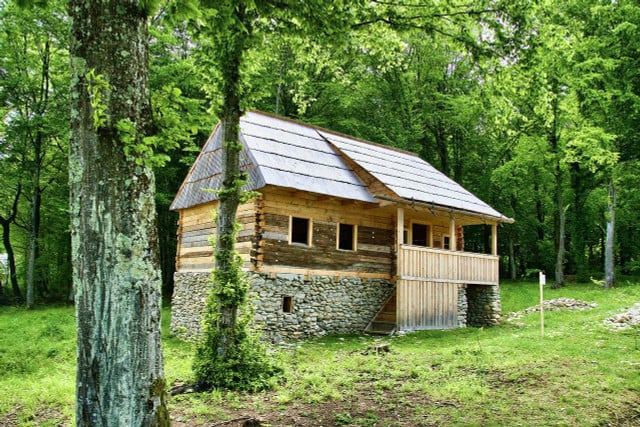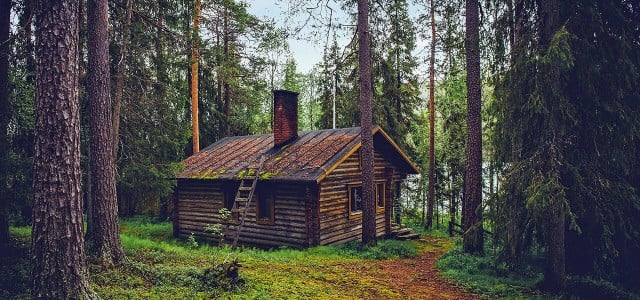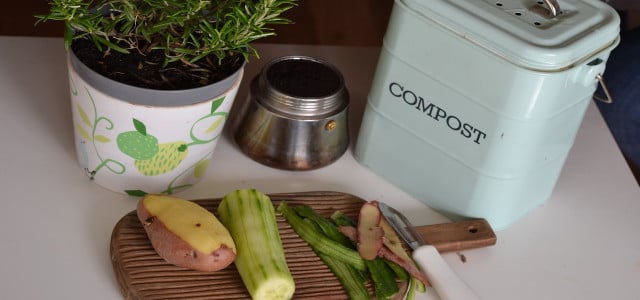Off-grid living means you are immersed in nature every day. We’ll look at the pros and cons of living off the grid, and give you tips for getting started.
Off-grid living is living in a rural area, such as a desert or forest, away from the rest of society. Similar to modern homesteading, off-grid living involves living a life of self-sufficiency by using renewable energy as much as possible and producing your own food. The land is the basis for off-the-grid living, and this includes choosing somewhere to live that is in a remote area.
To get started with off-grid living you will need to decide where to live. A large plot of land with a running water source is ideal. Living in a remote area will mean you may not have access to water supplies, so having a water collection system is vital for off-grid living. Living far from grocery stores will mean you need to grow your food, so you may grow your fruits and vegetables in a garden. Meat and eggs can also be produced if you keep your own livestock.
Since you won’t be connected to the power grid, you will need to generate your own electricity. This means having a power-generating system with backups that can provide you with all the electricity you will need to run your household, including household appliances, charging stations, and other forms of technology. There are many sustainable options to power your home, including wind turbines or solar panels. To deal with waste disposal, you will need composting waste disposal system, or you can dig a traditional septic system.
Is Off Grid Living Sustainable?

The design of off-grid living means that it is much more sustainable than conventional living as you use less energy. In the US, roughly 20 percent of greenhouse gas emissions relating to energy are from heating, cooling and powering households. Living off the grid means that your household will not contribute to causing climate change in this way. Off-grid homes are usually better insulated, have fewer energy needs, and are powered with sustainable energy sources such as solar or wind energy, rather than relying on fossil fuels.
Another aspect of off-grid living that is sustainable is that you grow your own food and produce your own food, such as meat and eggs. This means that you are not consuming food grown with chemicals, fertilizers or pesticides, transported long distances, or packed in unnecessary plastic. If you compost, this is another great way that makes off-grid living sustainable. By composting you help to save soil, water, and reduce waste.
Off the Grid Living: Pros and Cons



The advantages of off-grid living include:
- Save money. Although the initial cost of setting up your household may be expensive, once you have invested in this, you will save money as you will have fewer costs associated with utility bills, food, and general consumption.
- Connect with nature. Off-the-grid living means you are immersed in nature and away from the stresses of modern life. Studies show that spending 120 minutes a week in nature improves health and wellbeing. With off-grid living, you are surrounded by nature all of the time.
- Sustainable lifestyle. Using renewable energy to power your home and growing your own food means you contribute less to the throwaway culture of our society today.
- Improved self-sufficiency. You grow your own food and harvest your own energy from natural resources that are available to you.
- Freedom. Living off the grid means you are away from strict building controls and permitting regulations, so you have more freedom in how you’d like to build your home.
Off-grid living can be challenging and it takes a lot of commitment and hard work to set up a home. The disadvantages to off grid living include:
- High initial cost. Setting up your energy source as well as your water supply and waste disposal can be expensive.
- Lots of work is involved. You need skills, especially when setting up your home, including knowing how to set up the energy and water supply. You also need to know how to grow your own food and possibly hunt.
- Sometimes things can go wrong. Be prepared that sometimes you may not have water or electricity.
- Isolation. Asking yourself if you are okay with not having meaningful human interaction every day is something to consider before moving off the grid.
Read more:
- 10 Green Tips That Will Make Your Everyday Life More Sustainable
- 10 Everyday Green Living Ideas: Sustainability on a Shoestring Budget
- Precycling: How to Say No to Packaging Waste
Do you like this post?







